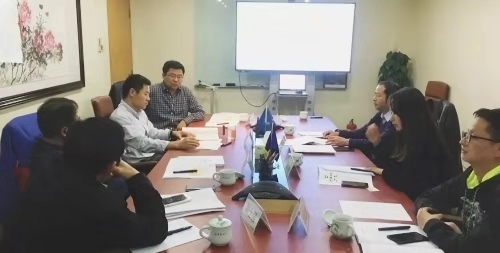 Research Update
Research Update
23
NovOn the afternoon of November 23, 2018, International Ecological Economy Promotion Association (IEEPA) and National Academy of Development and Strategy (NADS) of Renmin University of China jointly held the “Ecological Economy and Green Finance” Seminar.

Li Junyang, Vice-president and Secretary-general of IEEPA, explained the structure and operating mechanism of eco-economy management. Eco-economy management is to transform the intangible ecological resources into tangible investment capital through market mechanism, which is conducive to the value discovery, optimized allocation of ecological resources and its investment and development as well as equity transaction and transfer. Li stated that on one hand, policies should make it possible to transform the natural resources into economic gains, on the other hand, to offer a way to let capital invest into the natural resources. Li also offered insights into how to enhance international competitiveness, improve people’s ecological welfare, and build new model of eco-economy in regard to policy structure, business model design and operation guide.
Lin Jian, Research Fellow of NADS and Director of Social System Engineering Research Center, stressed that it is of great significance to correctly understand and follow the rules of ecological capital and eco-economy operation in order to further promote the development of eco-economy and eco-civilization. As a financial service tool taking environmental protection as the basic policy, green finance requires decision makers to take the eco-related potential returns, risks and costs into accounts during investment and financing process. Green finance helps promote the sustainable development by supporting the environmental-friendly business activities. Lin also analyzed the issue of how to assess the asset value of ecological resources, emphasizing that the assets accounting and assessment must be done in a scientific way.
Zhao Jianjun, Professor of China National School of Administration, President of Innovation Strategy Committee of the Chinese Society for Dialectics of Nature/Philosophy of Nature, Science and Technology, stated that scientific index system, methods and tools are needed to evaluate the asset value of ecological resources. The uncertainty of green GDP measurement is a big problem as eco-economy is closely related with green economy, recycling economy and low-carbon economy.
Chen Anguo, Professor of China National School of Administration, pointed that we should find a way to blend the government, enterprises, and academia sectors, and to connect with related international institutions while dealing with climate change and trading of carbon, water, forest and emission etc. multiple fund-raising channels such as eco-fund, trust, bond are to be established to provide basic public service and foster emerging industry. Pilot projects shall be conducted in order to classify and improve the building of eco-civilization system.
Xie Shiqiang, Research Fellow of Chinese Academy of Social Science, and Distinguished Expert of China Development Bank, analyzed the relations among the ecological resources, ecological asset and ecological capital, stressing that high quality development should attach importance to both economic gains and ecological benefits. Ecological development shall be coordinated with the transformation and development of resource-based cities as well as the ecological demand of better developed areas. The ecological financial transaction tools and related index shall be suitable to the individual characteristics of people, enterprises, government and social organizations, thus further promoting the ecological development at different regions.